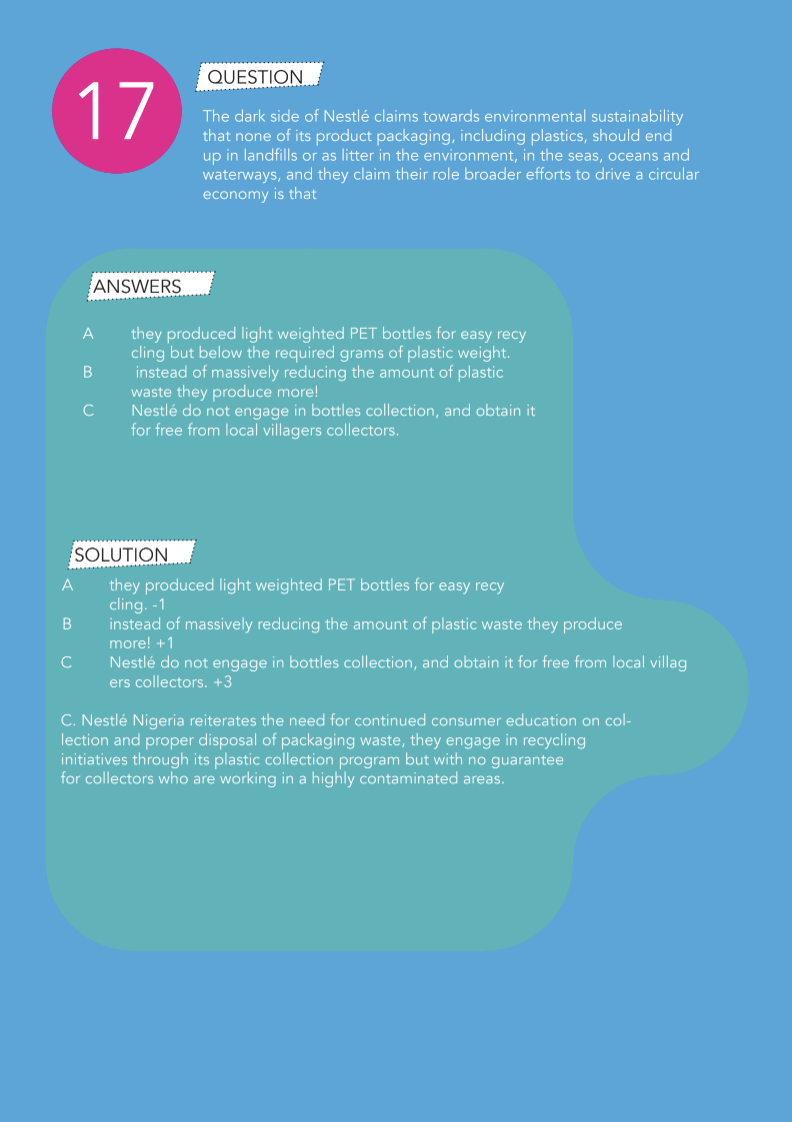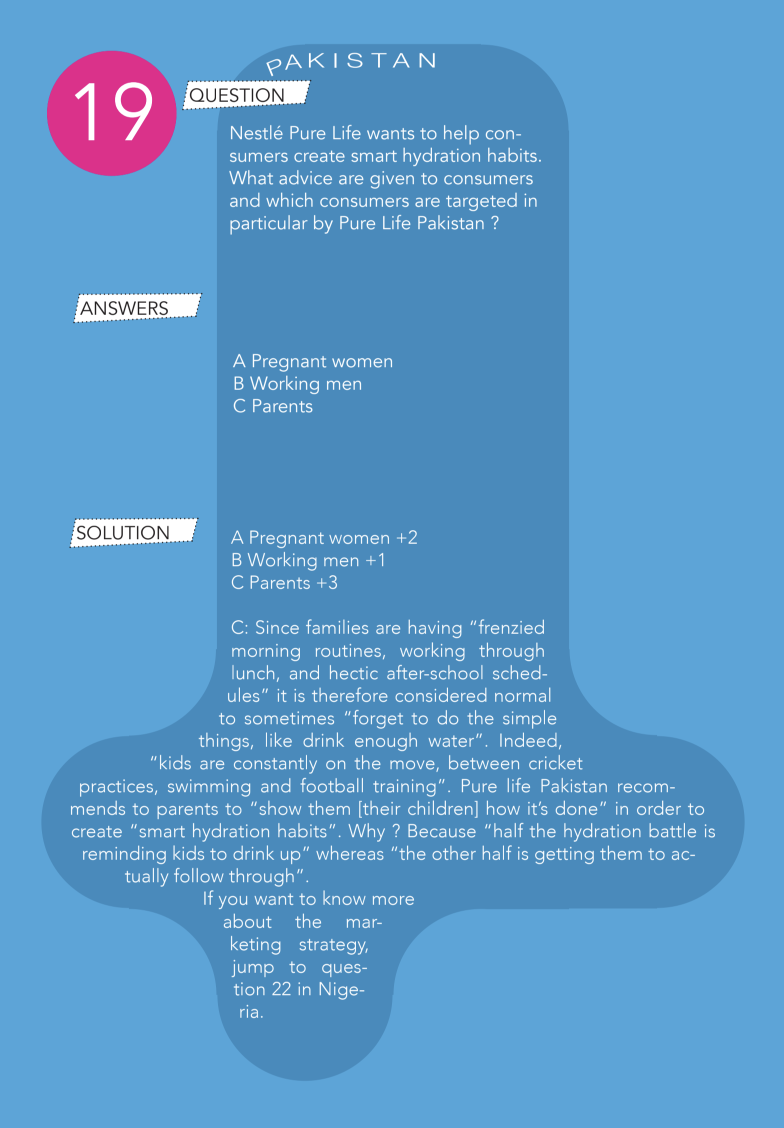DON’T BOTTLE: A Game
Authors: Sophie Guitard | Jil-Nora Hermann | Gasdiah Ibrahim | Luzia Nieuwenhuizen | Maeva Yersin
Photos courtesy Fiona Hager
“In Nigeria, Nestlé claimed to create a circular economy. They have produced lightweight bottles that can be easily recycled, but the work of gathering is performed free of charge by collectors from the villages. Any remaining waste which cannot be recycled is again dumped in someone else's backyard… We need to confront the complex realities of Swiss corporations in African contexts.”
- G.I.
- G.I.
“DON’T BOTTLE presents a counter map for Canada, Nigeria, Pakistan, and the United States because players are encouraged to question the privatization of access to water through Nestlé. The game encourages the public to think about Nestlé’s social and environmental impact in the bottled water industry, using references to sources such as testimonies, social media, and newspaper articles.” - JN.H.




From the authors: “DON’T BOTTLE explores Nestlé’s global footprint while addressing the social and environmental violence of corporate expansion and logistics. DON’T BOTTLE offers players a visual representation of the ways Pure Life’s marketing and extraction operations can be understood as an extension of Swiss colonial relations.”
“The board game is intended to look playful and colorful because it is designed for families or educational purposes. We focused on this audience because Pure Life targets children and education in its marketing. The game is composed of colors from Nestlé’s Pure Life logo, with Switzerland in magenta and the other countries in the logo’s blueish tones. The decision to visually draw more attention to the Switzerland piece of the game board represents the country’s global influence, disproportionate to its size.” - L.N.
DON’T BOTTLE is a counter-map board game and educational tool. The project was designed in conversation with the 1930s Maggi “Fliegerspiel” game. Players learn about the impacts of Nestlé’s Pure Life bottled water brand in five case study countries, including Switzerland. To travel around the abstracted “map” board, players answer fact- and scenario-based questions about water resources and Pure Life. For each correct answer, players can take “water drops” out of Nestlé’s private supply, with the aim of collectively returning as many drops as possible to the public. Through its abstract map and questions, the game offers a counter-narrative to the pro-Pure Life “educational” messaging Nestlé exports in its bottled water marketing.
